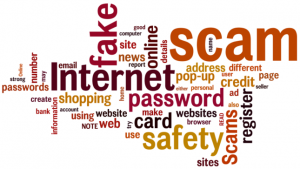- Use strong passwords
Along with strong malware protection, creating a proper password plan is probably the most important thing you can do to protect yourself online. A strong password usually should have at least 8 characters (the longer the better), with a mixture of upper and lower-case letters, numbers and, if the site or service allows, special characters, such as “!,” “#” and “?.”
password plan is probably the most important thing you can do to protect yourself online. A strong password usually should have at least 8 characters (the longer the better), with a mixture of upper and lower-case letters, numbers and, if the site or service allows, special characters, such as “!,” “#” and “?.”
- Keep your software updated
Security holes in popular software programs make it easier for hackers to install malware on your devices. Once these holes are discovered, software companies usually issue updates to fix the issue. But, because many people don’t take the time to update their software, hackers quickly take advantage of these opportunities to install Trojans, spyware and other nasty programs.
The solution is simple – keep your software updated.
- Install malware protection
Trojans, viruses, keyloggers, zombie code, spyware and adware are continuously finding new ways to make it onto your devices.
And don’t think you’re safe just because you’ve heard that a given device “can’t get a virus”. Windows, Macs, iOS and Android all have been the target of successful malware attacks. And many risks we face online aren’t based on what device we’re using. Phishing attacks—fraudulent websites that mimic real websites in order to collect personal information or user names and passwords—can happen anytime you click on the wrong link in an email or mistype a web address.
Most of the security vendors now offer packages that will protect all of your devices from these various attacks. And some, such as McAfee’s All Access, also offer password management features that will help you protect and sync your passwords, as well.
- Manage your social network privacy settings
Adjust the settings to the level of transparency you want on social networks.
- Keep others from seeing your browsing activity
Protecting your browsing history on your personal computer is easy. Each of the major browsers has a “private browsing” mode that deletes cookies, temporary Internet files and browsing history after you close the window so others with access to your PC won’t be able to see what sites you visited.
To protect your personal information when logging into a site, you should always check that the site uses a secure connection when logging (You can easily see if you have a secure connection by checking your browser’s address bar and looking for either a little padlock symbol or the letters “https” at the beginning of the site URL). And for complete privacy when on public networks, consider subscribing to a VPN service.#GreenEdgeTechnologies #GETS
 Follow
Follow